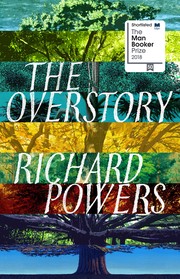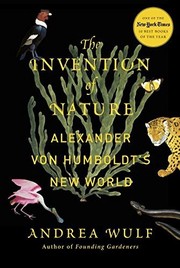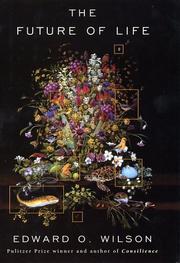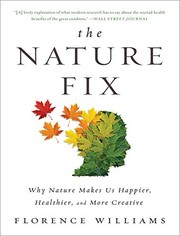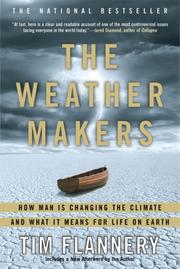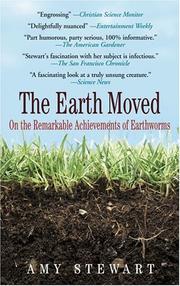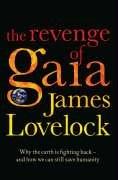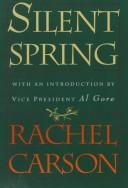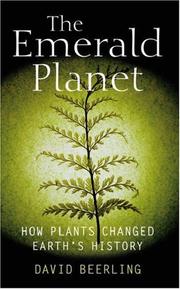Are you looking to deepen your understanding of our planet and the natural world? Look no further than this curated list of the 20 best books about the earth. From informative non-fiction to captivating fiction, these books will take you on a journey through the wonders of our planet. Whether you’re a nature enthusiast, a science buff, or simply curious about the earth, these books are sure to educate and inspire. Get ready to expand your knowledge and appreciation of the earth with these top-notch reads!
Contents
- 1 20 Best Books About The Earth
- 2 The Uninhabitable Earth: Life After Warming
- 3 The Sixth Extinction: An Unnatural History
- 4 The Hidden Life of Trees: What They Feel, How They Communicate—Discoveries from a Secret World
- 5 Sapiens: A Brief History of Humankind
- 6 The Overstory
- 7 The Water Will Come: Rising Seas, Sinking Cities, and the Remaking of the Civilized World
- 8 The Invention of Nature: Alexander von Humboldt’s New World
- 9 The World Without Us
- 10 The Future of Life
- 11 The Nature Fix: Why Nature Makes Us Happier, Healthier, and More Creative
- 12 The Ends of the World: Volcanic Apocalypses, Lethal Oceans, and Our Quest to Understand Earth’s Past Mass Extinctions
- 13 The Weather Makers: How Man Is Changing the Climate and What It Means for Life on Earth
- 14 The Big Ratchet: How Humanity Thrives in the Face of Natural Crisis
- 15 The Earth Moved: On the Remarkable Achievements of Earthworms
- 16 The Revenge of Gaia: Earth’s Climate Crisis and the Fate of Humanity
- 17 The Hidden Half of Nature: The Microbial Roots of Life and Health
- 18 The Feather Thief: Beauty, Obsession, and the Natural History Heist of the Century
- 19 Silent Spring
- 20 The Emerald Planet: How Plants Changed Earth’s History
- 21 Guns, Germs, and Steel: The Fates of Human Societies
- 22 Conclusion
- 23
- 24 Explore 20 Best Ww1 Books with Our 2024 Update
- 25 Best Books About The Theory Of Relativity. 2024 Edition
- 26 Explore 20 Best Theodore Roosevelt Books with Our 2024 Update
20 Best Books About The Earth
The Uninhabitable Earth: Life After Warming
by David Wallace-Wells
The Uninhabitable Earth: Life After Warming by David Wallace-Wells is a groundbreaking book on the earth that delves into the catastrophic effects of climate change. Wallace-Wells paints a vivid and alarming picture of what the future holds if we continue on our current path of environmental destruction. He explores the potential consequences of rising temperatures, from extreme weather events to food and water shortages, and the resulting impact on human civilization. This book about the earth is a wake-up call, urging readers to confront the harsh realities of climate change and take urgent action to mitigate its effects. With compelling storytelling and well-researched facts, The Uninhabitable Earth is a must-read for anyone concerned about the future of our planet.
The Sixth Extinction: An Unnatural History
by Elizabeth Kolbert
The Sixth Extinction: An Unnatural History by Elizabeth Kolbert is a captivating book on the earth that delves into the history of mass extinctions and their impact on the planet. Kolbert takes readers on a journey through time, exploring the causes and consequences of previous extinctions and the current wave of species loss. Through vivid storytelling and meticulous research, she paints a compelling picture of the interconnectedness of life on the earth, and the profound impact of human activities on the natural world. This thought-provoking book about the earth offers a sobering look at the consequences of human actions and the urgent need for conservation efforts to protect the planet’s biodiversity. The Sixth Extinction is a must-read for anyone interested in understanding the complex and fragile ecosystems of the earth.
The Hidden Life of Trees: What They Feel, How They Communicate—Discoveries from a Secret World
by Peter Wohlleben
The Hidden Life of Trees: What They Feel, How They Communicate—Discoveries from a Secret World by Peter Wohlleben is a fascinating book about the earth that reveals the intricate and interconnected world of trees. Wohlleben, a forester, shares his deep understanding of trees and their communication, shedding light on their social networks, parental instincts, and survival strategies. Through captivating storytelling, he uncovers the hidden life of these majestic beings, showing how they support and communicate with each other through an underground network of roots and fungi. This eye-opening book on the earth challenges our perception of trees and their place in the natural world, inviting readers to see the forest in a whole new light. Whether you’re a nature enthusiast or simply curious about the wonders of the natural world, this the earth book will leave you with a newfound appreciation for the intelligence and resilience of trees.
Sapiens: A Brief History of Humankind
by Yuval Noah Harari
Sapiens: A Brief History of Humankind by Yuval Noah Harari is a captivating book about the earth that takes readers on a thought-provoking journey through the history of humanity. Harari explores how Homo sapiens became the dominant species on the earth, delving into our evolution, the agricultural revolution, the formation of empires, and the impact of technology and capitalism. With a blend of anthropology, history, and biology, Harari presents a compelling narrative that challenges our understanding of human history and the forces that have shaped our world. From the ancient past to the modern age, Sapiens offers an insightful and engaging exploration of the human experience on the earth, making it a must-read for anyone interested in understanding the complex and fascinating story of our species.
The Overstory
by Richard Powers
The Overstory by Richard Powers is a profound and timely novel that can be described as a ‘book about the earth’. Through its intricate and interconnected narratives, the book delves into the lives of nine individuals whose paths become entwined with trees and the natural world. With breathtaking prose and a deep understanding of the natural world, Powers weaves together the stories of these characters, exploring themes of environmentalism, activism, and the interconnectedness of all living things. The novel is a powerful reminder of the importance of trees and the earth, and the impact of human actions on the natural world. The Overstory is a captivating and thought-provoking ‘book on the earth’ that challenges readers to consider their relationship with the environment and the consequences of their actions.
The Water Will Come: Rising Seas, Sinking Cities, and the Remaking of the Civilized World
by Jeff Goodell
The Water Will Come: Rising Seas, Sinking Cities, and the Remaking of the Civilized World by Jeff Goodell is a compelling book on the earth that delves into the pressing issue of sea level rise and its impact on coastal cities around the world. Goodell explores the science behind this phenomenon and its potential to reshape the very fabric of our civilization. Through vivid storytelling and in-depth research, he paints a vivid picture of the potential consequences of rising sea levels, from the displacement of millions of people to the destruction of iconic landmarks. This book about the earth serves as a wake-up call, urging readers to confront the reality of climate change and take action to mitigate its effects. The Water Will Come is a timely and urgent read that offers valuable insights into the future of our planet and the challenges we face in preserving it for future generations.
The Invention of Nature: Alexander von Humboldt’s New World
by Andrea Wulf
The Invention of Nature: Alexander von Humboldt’s New World by Andrea Wulf is a captivating book about the earth that explores the life and legacy of the visionary scientist Alexander von Humboldt. Wulf brings to life the adventures of Humboldt as he travels through South America, Russia, and Europe, uncovering the interconnectedness of nature. The book on the earth presents Humboldt as a true pioneer, who not only revolutionized the way we understand the natural world but also inspired great minds such as Charles Darwin and Henry David Thoreau. Wulf’s vivid storytelling and meticulous research make this biography a thrilling journey through the life of a man who was ahead of his time in understanding the complex relationships that govern the planet. The Invention of Nature is a must-read for anyone interested in the history of science and the exploration of the natural world.
The World Without Us
by Alan Weisman
The World Without Us by Alan Weisman is a fascinating book about the earth. It explores what the world would be like if humans suddenly disappeared, delving into the impact of human civilization on the planet and how nature would reclaim the earth in our absence. Weisman takes readers on a thought-provoking journey through time, imagining a world where buildings crumble, wildlife flourishes, and the environment heals from the damage caused by human activity. This eye-opening book on the earth offers a unique perspective on the relationship between humanity and the natural world, prompting readers to consider the long-term consequences of our actions. With vivid descriptions and insightful analysis, The World Without Us is a must-read for anyone interested in environmental issues and the future of our planet.
The Future of Life
by Edward O. Wilson
The Future of Life by Edward O. Wilson is a captivating book about the earth that explores the urgent need to protect the planet’s biodiversity. Wilson, a renowned biologist, delves into the intricate web of life on Earth, shedding light on the myriad of species facing extinction due to human activities. With his compelling narrative, Wilson makes a passionate plea for conservation and sustainable living, emphasizing the critical role of biodiversity in maintaining the health of the planet. Through vivid descriptions and thought-provoking insights, he presents a compelling case for preserving the rich tapestry of life that inhabits our earth book. The book serves as a wake-up call, urging readers to take action to safeguard the future of life on our precious planet.
The Nature Fix: Why Nature Makes Us Happier, Healthier, and More Creative
by Florence Williams
The Nature Fix by Florence Williams is a captivating book about the earth and the powerful impact nature has on our well-being. Through immersive research and personal experiences, Williams explores the science behind how spending time in nature can improve our happiness, health, and creativity. She delves into the concept of “biophilia” and how our innate connection to the natural world can positively influence our minds and bodies. The earth book also takes readers on a global journey, from the Japanese practice of “forest bathing” to the healing powers of ecotherapy in Scotland, showcasing the diverse ways in which nature can benefit us. Whether you’re a nature enthusiast or simply curious about the benefits of the great outdoors, The Nature Fix offers a fascinating and insightful exploration of our deep connection to the natural world.
The Ends of the World: Volcanic Apocalypses, Lethal Oceans, and Our Quest to Understand Earth’s Past Mass Extinctions
by Peter Brannen
The Ends of the World: Volcanic Apocalypses, Lethal Oceans, and Our Quest to Understand Earth’s Past Mass Extinctions by Peter Brannen is a captivating book on the earth. Brannen takes readers on a fascinating journey through the history of our planet, exploring the catastrophic events that have led to mass extinctions. From volcanic eruptions to deadly oceanic changes, the book delves into the various ways in which the earth book has faced apocalyptic scenarios. Through engaging storytelling and thorough research, Brannen sheds light on the importance of understanding these events in order to comprehend the future of our planet. This compelling book about the earth is a must-read for anyone interested in the history and future of our world.
The Weather Makers: How Man Is Changing the Climate and What It Means for Life on Earth
by Tim Flannery
The Weather Makers: How Man Is Changing the Climate and What It Means for Life on Earth by Tim Flannery is a groundbreaking book on the earth’s climate. Flannery, a renowned scientist and environmentalist, delves into the complex and urgent issue of climate change, offering a comprehensive overview of the Earth’s delicate balance and the impact of human activity on its climate. The book provides a compelling and accessible exploration of the science behind global warming, the potential consequences for life on the planet, and the actions that can be taken to mitigate the crisis. The Weather Makers is a must-read for anyone seeking to understand the challenges facing the Earth and the vital importance of addressing climate change.
The Big Ratchet: How Humanity Thrives in the Face of Natural Crisis
by Ruth DeFries
The Big Ratchet by Ruth DeFries is a fascinating book on the earth that explores how humanity has managed to thrive in the face of natural crisis. DeFries takes readers on a journey through history, revealing how humans have continually adapted and innovated to overcome environmental challenges. From the agricultural revolution to the industrial revolution, DeFries demonstrates how each major advancement has propelled humanity forward, allowing us to not only survive, but to flourish on this planet. Through a combination of scientific research and engaging storytelling, the book about the earth offers valuable insights into the ways in which humans have transformed their relationship with the environment. The Big Ratchet is a thought-provoking and inspiring read that sheds light on our ability to adapt and thrive in the ever-changing world.
The Earth Moved: On the Remarkable Achievements of Earthworms
by Amy Stewart
The Earth Moved: On the Remarkable Achievements of Earthworms by Amy Stewart is a fascinating exploration of the often overlooked creatures that play a crucial role in the health of the soil. In this insightful book about the earth, Stewart delves into the world of earthworms, revealing their remarkable abilities to aerate and fertilize the soil, and the vital impact they have on the entire ecosystem. Through engaging storytelling and thorough research, Stewart shines a light on these unsung heroes of the underground, offering readers a newfound appreciation for the essential work of earthworms. Whether you’re a gardener, environmentalist, or simply curious about the intricate workings of the natural world, this book on the earth is sure to enlighten and inspire. Join Stewart on a journey beneath the surface and discover the incredible achievements of earthworms.
The Revenge of Gaia: Earth’s Climate Crisis and the Fate of Humanity
by James Lovelock
The Revenge of Gaia: Earth’s Climate Crisis and the Fate of Humanity by James Lovelock is a thought-provoking book about the earth and the urgent environmental challenges we face. Lovelock, a renowned environmentalist and scientist, presents a compelling argument about the impact of human activities on the planet and the impending consequences of climate change. Through his Gaia theory, which views the Earth as a self-regulating entity, Lovelock warns of the dire consequences if we continue to ignore the signs of environmental degradation and global warming. This earth book is a wake-up call for humanity to take action and change our ways before it’s too late. With a powerful and urgent message, The Revenge of Gaia is a must-read for anyone concerned about the future of our planet and the fate of humanity.
The Hidden Half of Nature: The Microbial Roots of Life and Health
by David R. Montgomery and Anne Biklé
The Hidden Half of Nature: The Microbial Roots of Life and Health by David R. Montgomery and Anne Biklé is a captivating exploration of the intricate relationship between humans and the soil beneath our feet. This enlightening book on the earth reveals the crucial role that microbes play in shaping the health of our planet and our own bodies. Through a compelling blend of science, history, and personal anecdotes, the authors take readers on a journey to uncover the hidden world of microorganisms and their impact on agriculture, medicine, and the environment. As they delve into the symbiotic relationship between humans and the earth, Montgomery and Biklé offer a fresh perspective on the interconnectedness of all living things. Whether you’re a science enthusiast or simply curious about the unseen forces that shape our world, this book about the earth is sure to leave you with a newfound appreciation for the microbial wonders beneath our feet.
The Feather Thief: Beauty, Obsession, and the Natural History Heist of the Century
by Kirk Wallace Johnson
The Feather Thief: Beauty, Obsession, and the Natural History Heist of the Century by Kirk Wallace Johnson is a captivating non-fiction book that delves into the bizarre world of feather obsession and the shocking heist of rare bird specimens from the Natural History Museum at Tring. This book takes readers on a thrilling journey through the depths of human greed and passion, as the author uncovers the strange subculture of fly-tying and the lengths to which individuals will go to acquire the feathers of exotic birds. With meticulous research and vivid storytelling, Johnson brings to light the devastating impact of the theft on the field of natural history and the quest for justice. The Feather Thief is a compelling exploration of the intersection between beauty, obsession, and the natural world that will leave readers spellbound from start to finish.
Silent Spring
by Rachel Carson
Silent Spring, written by Rachel Carson, is a groundbreaking book on the earth that ignited the environmental movement. Published in 1962, it exposed the harmful effects of pesticides on the environment and human health. Carson’s powerful writing and in-depth research shed light on the devastating impact of human activities on the earth, leading to widespread awareness and activism. Through meticulous storytelling and compelling evidence, she motivated readers to reconsider their relationship with the natural world and inspired a global movement for environmental conservation and sustainability. Silent Spring remains a timeless and influential book about the earth that continues to provoke thought and action in the ongoing battle to protect our planet.
The Emerald Planet: How Plants Changed Earth’s History
by David Beerling
The Emerald Planet: How Plants Changed Earth’s History by David Beerling is a fascinating exploration of the profound impact that plant life has had on the planet. This captivating book on the earth takes readers on a journey through time, revealing the role of plants in shaping the Earth’s climate, atmosphere, and overall environment. From the evolution of photosynthesis to the spread of forests across the continents, Beerling delves into the ways in which plants have influenced Earth’s history and the development of life on our planet. With engaging storytelling and insightful scientific research, this book about the earth offers a fresh perspective on the interwoven relationship between plants and the earth, making it a must-read for anyone curious about the natural world and our place within it.
Guns, Germs, and Steel: The Fates of Human Societies
by Jared Diamond
Guns, Germs, and Steel: The Fates of Human Societies by Jared Diamond is a fascinating book about the earth and the factors that have shaped the course of human history. Diamond explores how geography, the distribution of plants and animals, and the development of technology have influenced the rise and fall of civilizations. He delves into the impact of guns, germs, and steel on the conquest and colonization of different regions, offering a thought-provoking perspective on the inequalities between societies. This book on the earth is a compelling and eye-opening read that challenges readers to consider the broader forces at play in shaping the modern world. Diamond’s insightful analysis provides a compelling narrative of human development and offers a fresh understanding of the forces that have shaped our world.
Conclusion
Exploring the wonders of our planet through literature is a fascinating journey. The 20 best books about The Earth offer a diverse range of perspectives, from scientific exploration to environmental advocacy. Whether you’re interested in geology, ecology, or simply marveling at the beauty of our world, these books provide insight, inspiration, and knowledge. Dive into these captivating reads and deepen your understanding and appreciation of the earth.
Which The Earth book is best?
The best book on The Earth can vary with personal preference, but three widely recommended titles are:
- The Uninhabitable Earth: Life After Warming by David Wallace-Wells,
- The Sixth Extinction: An Unnatural History by Elizabeth Kolbert,
- The Hidden Life of Trees: What They Feel, How They Communicate—Discoveries from a Secret World by Peter Wohlleben.
Each offers valuable insights and could be a great starting point.
What are the best books to learn about The Earth?
For those looking to learn about The Earth, there is a wealth of literature that can provide a comprehensive understanding of the subject. Some of the most highly recommended books include:
- The Uninhabitable Earth: Life After Warming by David Wallace-Wells,
- The Sixth Extinction: An Unnatural History by Elizabeth Kolbert,
- The Hidden Life of Trees: What They Feel, How They Communicate—Discoveries from a Secret World by Peter Wohlleben,
- Sapiens: A Brief History of Humankind by Yuval Noah Harari,
- The Overstory by Richard Powers,
- The Water Will Come: Rising Seas, Sinking Cities, and the Remaking of the Civilized World by Jeff Goodell,
- The Invention of Nature: Alexander von Humboldt’s New World by Andrea Wulf,
- The World Without Us by Alan Weisman,
- The Future of Life by Edward O. Wilson,
- The Nature Fix: Why Nature Makes Us Happier, Healthier, and More Creative by Florence Williams
These books offer a range of perspectives on The Earth, covering various aspects and approaches to the subject.
What are the best books on The Earth?
The best books on The Earth include:
- The Uninhabitable Earth: Life After Warming by David Wallace-Wells,
- The Sixth Extinction: An Unnatural History by Elizabeth Kolbert,
- The Ends of the World: Volcanic Apocalypses, Lethal Oceans, and Our Quest to Understand Earth’s Past Mass Extinctions by Peter Brannen,
- The Weather Makers: How Man Is Changing the Climate and What It Means for Life on Earth by Tim Flannery,
- The World Without Us by Alan Weisman,
- The Water Will Come: Rising Seas, Sinking Cities, and the Remaking of the Civilized World by Jeff Goodell.
Each offers unique insights into the subject. While these books on the topic of The Earth are highly regarded, it’s important to note that any list of ‘best’ books is subjective and reflects a range of opinions.
What are the best The Earth books of all time?
Choosing the best The Earth books of all time can vary depending on who you ask, but seven titles that are often celebrated include
- The Uninhabitable Earth: Life After Warming by David Wallace-Wells,
- The Sixth Extinction: An Unnatural History by Elizabeth Kolbert,
- The Overstory by Richard Powers,
- The World Without Us by Alan Weisman,
- The Nature Fix: Why Nature Makes Us Happier, Healthier, and More Creative by Florence Williams,
- The Weather Makers: How Man Is Changing the Climate and What It Means for Life on Earth by Tim Flannery,
- and The Ends of the World: Volcanic Apocalypses, Lethal Oceans, and Our Quest to Understand Earth’s Past Mass Extinctions by Peter Brannen.
Each of these books has made a significant impact in the field of The Earth and continues to be influential today.





